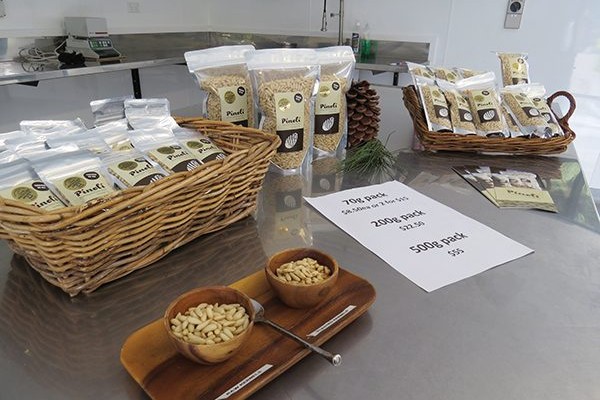Pine nuts taste super sprinkled over a lamb salad.
As a tree, the stone pine holds huge potential to be a dryland legend – integrating with stock, controlling erosion on tough hot sites, plus producing an income. Marlborough produces 2% of the world’s pine nut supply. It’s the highest value nut in the world – a small sack is worth $3000 and a typical grain hopper $70,000. However, producing them takes investment and patience.
Entrepreneurs Andy and Barbara Wiltshire, together with Lee Paterson, have carved a completely new industry for NZ, planting 550 hectares of Pinus pinea in eastern Marlborough and the Wairau Valley. Through trial and error (initially a converted cement mixer) then expensive Spanish equipment, they have created a state-of-the-art factory to extract the precious nut from a stubborn cone and shell.
Their company Pinoli Premium Pine Nuts won the business innovation section of the Marlborough Environment Awards 2021. Speaking at the winner’s field day,Wiltshire said his trees yield well above those in Europe. Each tree grows 50 to 60 cones and each holds about 180 seeds. It takes six years to grow a crop and the trees can produce beyond 100 years. Some in Rome are 400 years old.
What excites him about the tree is that it loves hard dry sites, it doesn’t need pesticide or herbicide, doesn’t spread as a wilding pine and each stage of the pruning and extraction produces useful co-products for mulch and biofuel.
“They don’t acidify soils and roots grow six metres down.”
The total world crop is 25 tonnes and Pinoli produces three tonnes. Wiltshire would love more product and would like to see stone pines eligible for the ETS. They are classified as orchard trees so are ineligible.





